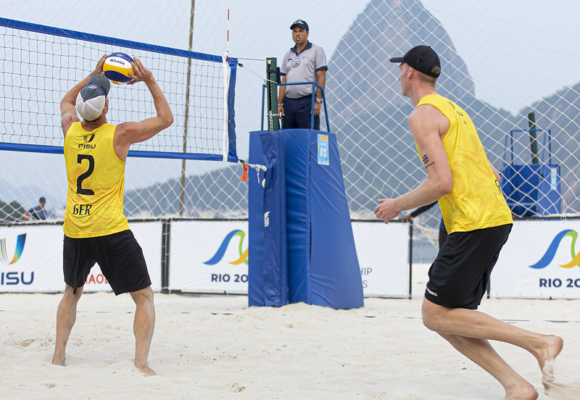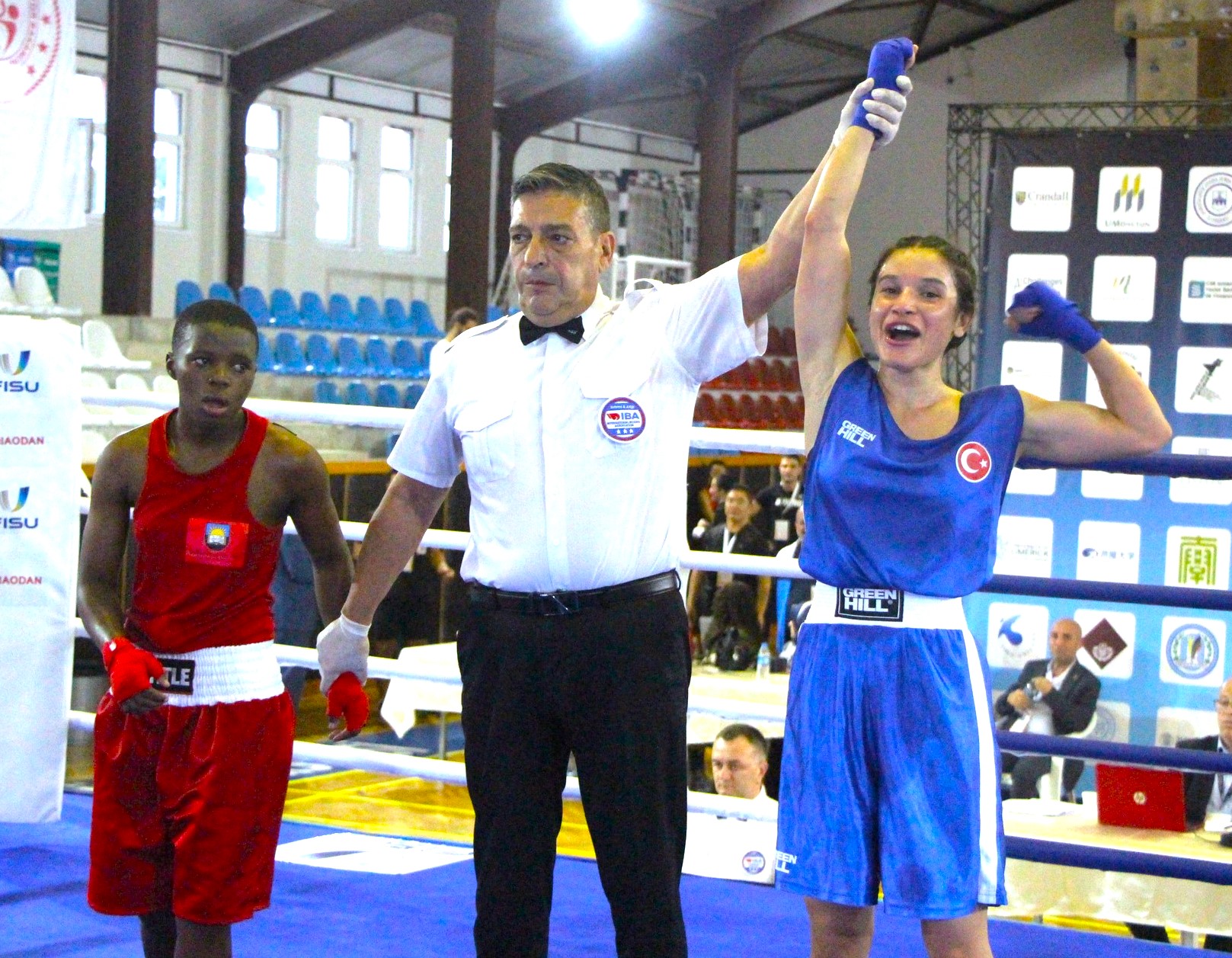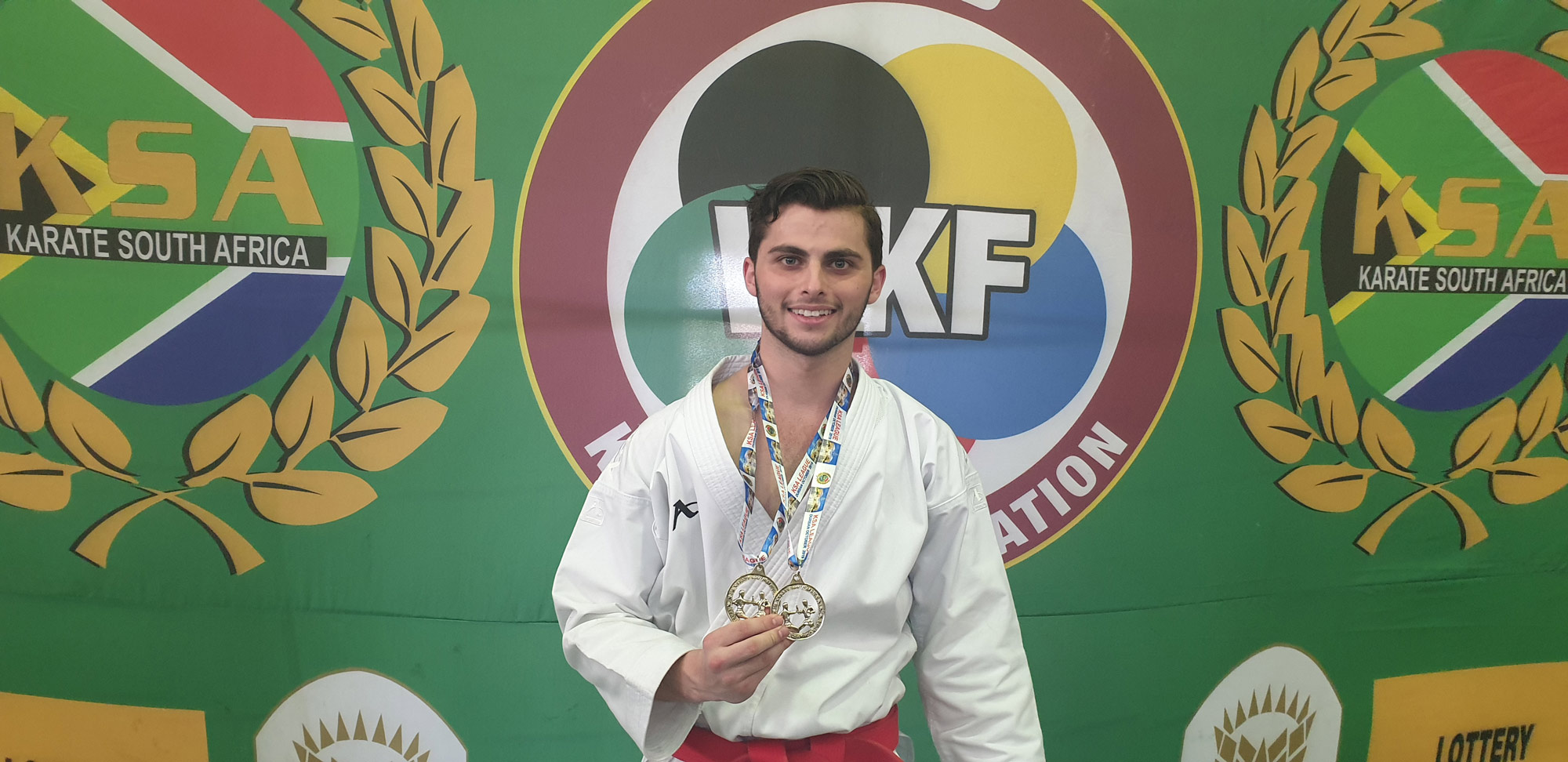
“What I enjoy most about my karate is the constant journey of striving for perfection.”
Just that statement alone describes the endless hours of commitment, meticulous preparation, constant repetition and unmatched devotion to the sport of karate that rising South African star Jesse Sim has towards his favourite sport.
Add onto this time spent studying towards a degree in mechanical engineering, as well as karate coaching lessons, and you can only imagine how little free time the talented 20-year-old has.
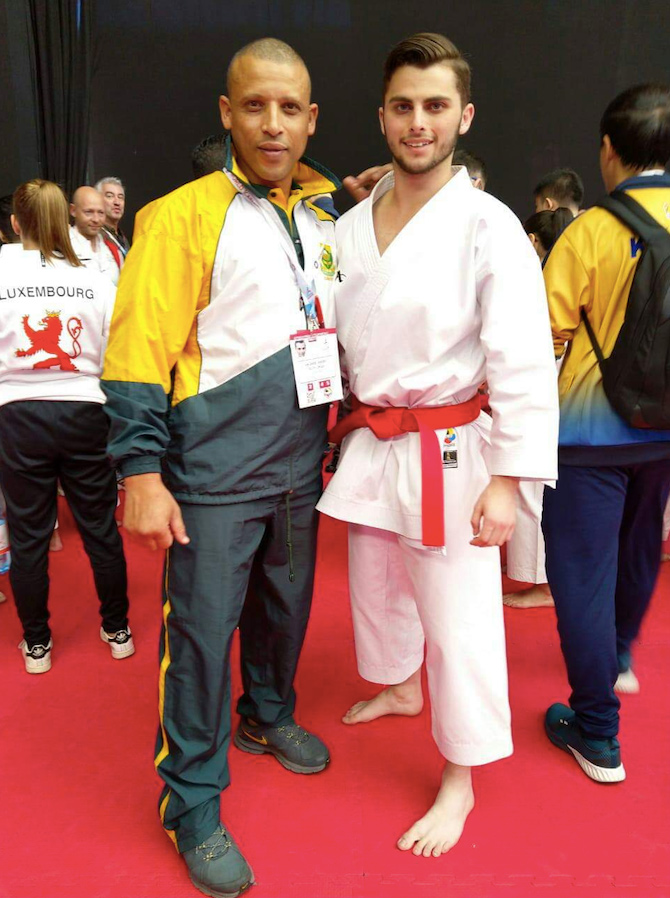 “Currently, my days are filled with lectures, practicals and tests at university from 7:30 in the morning till 17:30 in the afternoon,” he explains. “After that it’s an hour’s drive home to training from 18:30 till 20:00 and then dinner, and back into working till about 23:00 in the evening. And the process repeats until the weekend where I train for about three hours each day.”
“Currently, my days are filled with lectures, practicals and tests at university from 7:30 in the morning till 17:30 in the afternoon,” he explains. “After that it’s an hour’s drive home to training from 18:30 till 20:00 and then dinner, and back into working till about 23:00 in the evening. And the process repeats until the weekend where I train for about three hours each day.”
Just reading about it makes one ready for a nap!
Yet it’s all in a day’s work for Jesse, who fell in love with the combat sport from the tender age of three, but was only allowed by his sensei father Russel Sim to begin his training at the age of six.
And while all the other young and excited karatekas wanted to learn the flashy combat moves, Jesse stood out from the crowd, adamant to channel the deeper meaning of the sport and perfect it to the core.
“I really enjoyed watching all the discipline and respectful behaviour that went into karate and that was always my main reason for wanting to do it,” he says. “Most kids wanted to learn flying kicks and backflips, but I tended to lean more towards the discipline side of the sport and I really enjoyed watching how respected my father was as the teacher.”
This respect and appreciation for the sport propelled Jesse to greater heights as he was selected for the junior national team for the first time at just 14 years of age, and has been part of the South African team for his age group every year since.
After progressing to the senior category last year, Sim reached the pinnacle of his young career so far at last year’s African continental championships in Kigali, Rwanda where together with two teammates, he came third in the Senior Male Team kata event, earning his first continental medal.
Sim then followed that up with an impressive display at the 2018 Commonwealth Karate Championships held in Durban, South Africa where he won gold in both the Under-21 Male Kata and the Senior Male team kata competitions, the highlight of his career so far.
Yet it did not stop there for the talented 20-year-old: after a rigorous qualification process, having performed consistently at six national ranking tournaments, Jesse won the national championship this year and as the country’s top-ranked athlete, was selected to represent South Africa at the 11th Cadet, Junior and Under-21 World Karate Championships in Santiago, Chile last month.
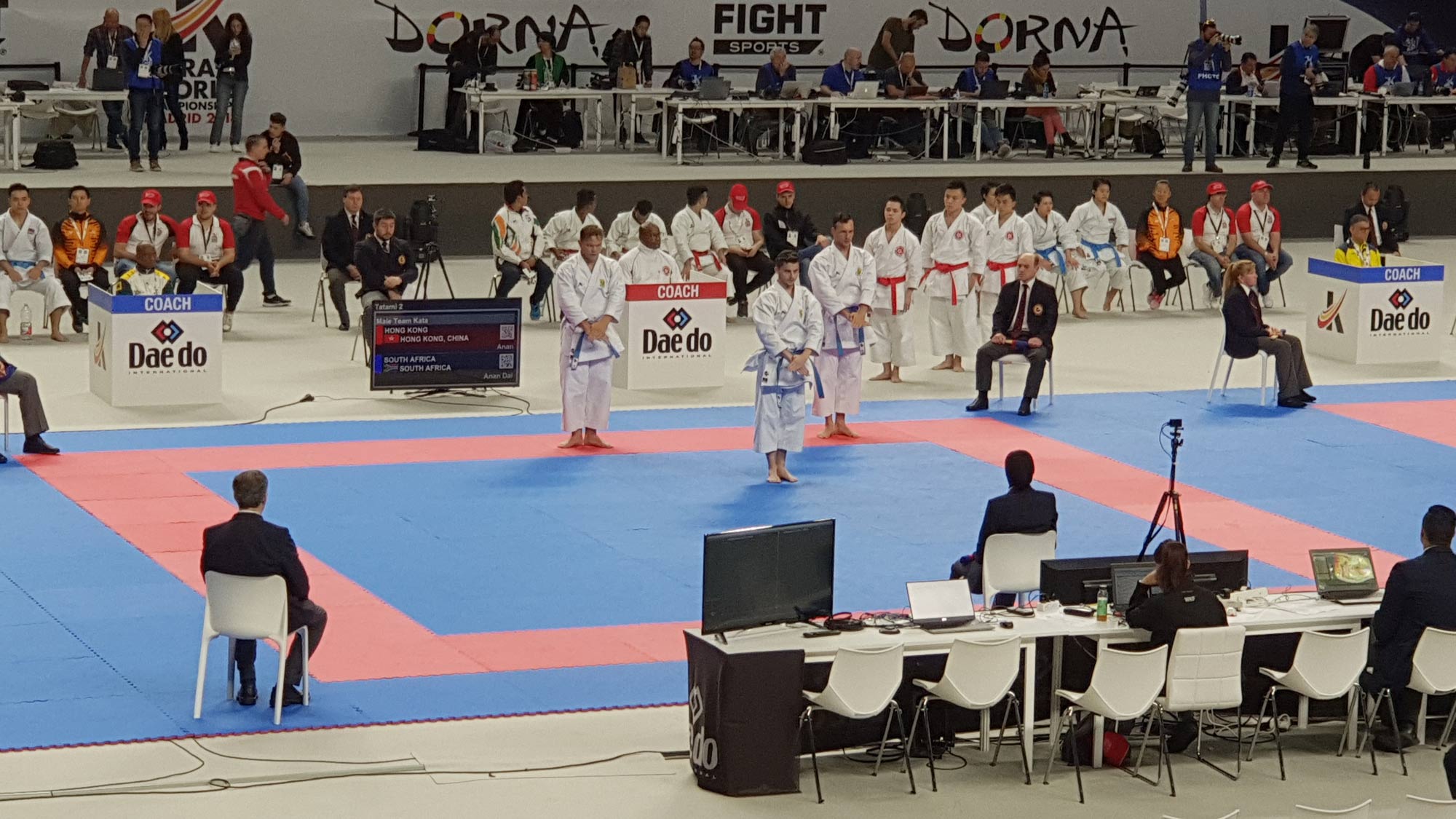
Despite his regional success, Jesse was all too aware of the different prospect such a prestigious international event would pose.
“The level that you compete at in South Africa is nowhere near the levels that you encounter at the World Championships and it is extremely nerve-racking when you don’t know what to expect,” he admits.
With rugby, cricket and football listed as South Africa’s main sports, it becomes all the more challenging for a budding karateka like Jesse to receive the support he needs to flourish in his chosen profession, with karate still deemed an amateur sport in the country.
“We do not gain the same level of exposure as the other athletes who compete at international tournaments in Asia and Europe,” he says of the standard of karate in his native country. “This is where the powerhouses of karate are. Going into the World Championships, you feel like an underdog, and in an athlete’s head you imagine that the athletes from countries like Japan, Spain or France will automatically do well. This isn’t for any other reason other than they are generally the more dominant teams at any international tournament.”
The level-headed athlete thus headed into the World Championships in Chile with an open mind and without too many expectations, yet surprised not only his fellow teammates but himself as well as he scored 23.2 out of 30 in his first round – the highest score ever achieved by a South African at a global competition.
“Most kids wanted to learn flying kicks and backflips, but I tended to lean more towards the discipline side of the sport.” – Jesse Sim
“Realistically I was hoping for a score somewhere around 22.0 and completely shocked myself when I got a bit higher,” he beamed. “This was the highest score that any of us have achieved outside of Africa at a World Championship, even higher than our senior athletes. For me it felt like a win as I was not expecting such a high score. Unfortunately, I was placed 5th in my pool out of 12 and only the top 4 athletes progressed to the next round, which meant that I did not go through. I missed going through by a score of 0.3, however I am still extremely happy with how everything went.”
Lessons learnt and valuable experience gained then for the rising star, who already has his sights set on his next goal.
“For next year I hope to win the Senior Individual Male Kata division in my first year in the senior individual category,” the determined youngster says. “I also want to go to the African continental championships in Morocco and reclaim a medal there with my team, while I also hope to be selected and compete in the Commonwealth Karate Championships in England and in the Senior World Championships in Dubai.”
Apart from his sporting goals, Jesse is aspiring to become a race engineer in Formula 1, where he hopes to use his mathematical abilities through his Engineering degree to “push the boundaries of motorsport”.
While this is some way off, the first-year University of Pretoria student understands the importance of education as he strives to balance his studies with his karate commitments.
“I believe it is extremely important to balance the two,” he says. “I know that I am not happy if I am only studying, or if I am only training. Both aspects give me a sense of direction when it comes to focusing on my future and building the kind of career that I want. When I need break from studying, I train. When I need a break from the training, I use my studies. This constant repetition between the two is what is keeping my focus and discipline on track. It allows me to experience two different aspects of life, without being confined to only one way of creating a future.”

All images supplied by Jesse Sim

